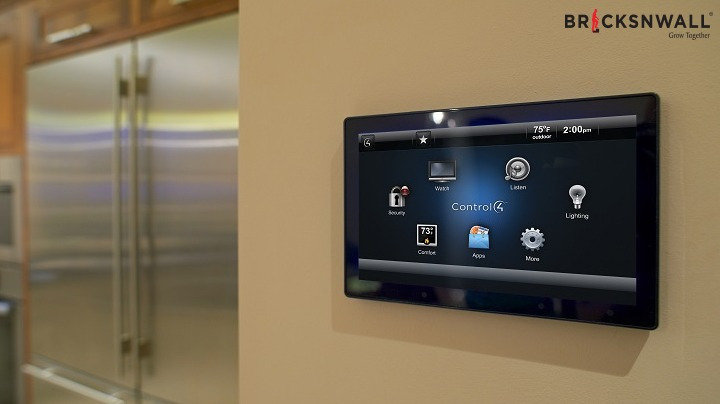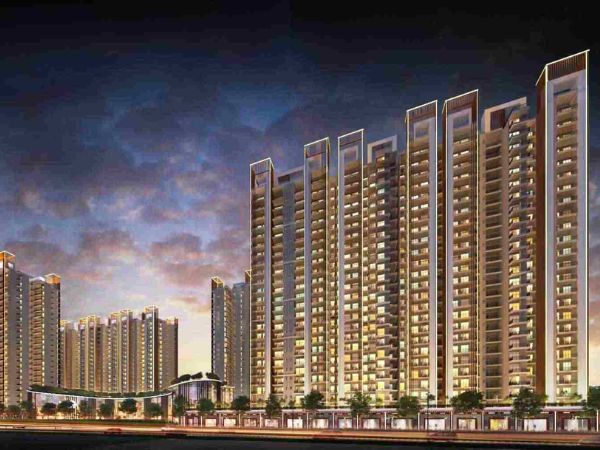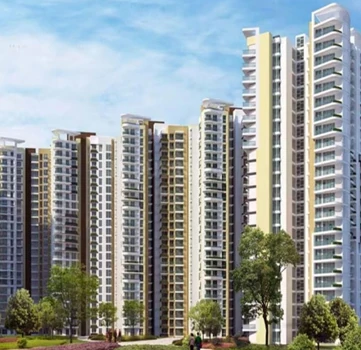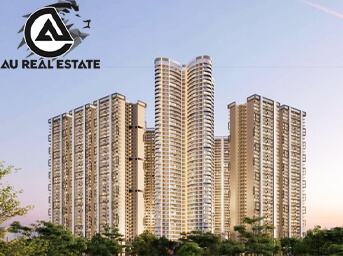Automated Homes: The future of Residential Real Estate
Ritika

Technology is the future and now real estate has
become the latest pawn in the game of bringing the impact of technology within
positive boundaries. Smart and automated homes are increasingly becoming less
of a concept and more of a reality with time. The end goal of technological
innovations had always been to better the lives of individuals and to give more
with less. Now, consumers of the real estate market will look forward to buying
such technologically advanced homes with heavy influence over all future
home-buying experiences as the housing sector has undergone thorough automation
and technology development in homes.
Technology in Real Estate
Like it does in all sectors, technology has changed
the scene of the industry with effects on the forces of demand and supply and
optimizing customer service expectations. Today’s homebuyer looks forward to
purchasing a home that is ‘smart’ in terms of technological capabilities for
increasing their standard of living and developing automation that can simplify
your everyday needs. ‘Smart home’ and ‘Home automation’ seem like similar
terms, but there are some fine differences between these concepts. There are
different ways to upgrade your living space with modern technologies and suit
it according to your needs.
In a smart home, most of the features are
controlled by and centrally connected to the Internet of Things (IoT) features.
The devices in such a home are considered ‘smart’ because they use
microprocessors, sensors, and software that can run autonomously with the
capabilities of performing multiple actions at once. Within this home, all the
devices that are interconnected with each other can communicate with each other
as well, which allows them to work in sync and communicate with you to
understand your needs and requirements, whether inside or outside the house.
The systems also collect data on consumer usage and share it for better
analysis to find out patterns and perform actions more to the liking of the
individual, based on their preferences visible through this data.
Home automation differs from a smart home because
it refers to the enabling system that makes a smart home a reality. It works as
a manager for your existing machines and regulates their activities, making
sure it is attuned to your requirements. It works through a centralized process
that works on connecting all the devices and providing a single interface or a
controller app to monitor these actions. In a fully automated home, various
device functions are adjusted to the specifications and the personal
preferences of the individual. Now, technologies of home automation are
becoming increasingly affordable as well, so most homes comprise various
features, especially with the development of the wireless system that allows
connectivity from anywhere in the world.
Demand and Benefits
Automated homes and bringing in the concept of ‘smart’ to what was once considered a physical structure to house a family
brings forward multiple possibilities of optimizing what is existing and with a
focus on the preferences of those whom this is intended for. This also works
towards conserving natural resources, decreases the carbon print and provides
an increased sense of safety, security and the feeling of being protected that
contributes towards overall efficiency and wellness. Let's say you want to open
your room's door. You can simply command the automated system and it will do
this for you.
If there aren’t enough advantages already, it is
also easy to resell a smart home in today’s market and for the conceivable
future. The resale value of the property increases exponentially with the
impact of home automation systems and smart devices. As smart-home technology
becomes more prevalent, people will begin to be more interested in following
the trend and subscribing to the simplicity and affordability that previously
weren’t associated with the market. With the features of the age of home,
location, market, physical condition, and the neighbourhood, technology, and
its presence also make a big tilt in prices and demand to your favour. Your
house will also sell well and quickly as this demand increases. Along with
effective marketing, listing smart technology features helps sell. A house
ready to move in along with the smart house features makes it practically
irresistible to a homebuyer.
With the rapid developments in IoT, artificial
reality (AR) and virtual reality (VR), real estate has joined the race for integrating
these technologies to meet the demands of the current real estate market. The
housing industry has reached the next level of comfort and satisfaction, with
concepts of luxury, comfort, and security being given prime importance rather
than the best prices or best location. With IoT, each appliance can now be
interconnected to provide the best services possible and be used to control the
machinery, including control and even lighting. Smart home automation began as
progress towards the next level to increase the competitiveness of the sector –
now as innovations flow through and affordability is a major concept that many
developers wish to comply with, many individuals are finding it financially
viable and desirable to own smart home.
Different Automated Systems
For example, the temperature control system comes
in handy with an environment that is currently undergoing climate change and
instances of drastic variations in temperature throughout the world come in
through the news. This system helps in monitoring the temperature regularly so
that the residents would not have to face the chief of extreme climate changes.
Since it is a highly efficient technology, lots of new homeowners look for this
facility in their preferred houses. The facility keeps an appropriate
temperature and is energy efficient at the same time, thus tending to the needs
and requirements of all the stakeholders in the equation. Some other facilities
that can make the house environment-friendly include air purification facilities,
thermostat controls, greenhouse monitoring systems lightening and humidity
control sensors.
Another basic element that homeowners look out for
is the possibility of smart security solutions. Most customers command a high
preference for this feature and will select houses solely based on this
feature. So, the smart security system is specially designed to tend to the
efficiency requirements in terms of the safety and security of every
individual. These range from CCTV cameras, sensors, intercom facilities, and
motion detectors to alarms, and even facial recognition software. These are
some of the most commonly used technologies of high demand in the market
currently. Get the product you desire and worry least about whether it fits in
your house, in terms of theme and décor. Get the outer looks matching and in
connection with the wall colours, the carpet colours or the general aesthetic
home feel. There are some monthly or yearly plans that you have to follow to
sign up for the continued functioning of these services, but this should not be
of any considerable worry as there are many services at reasonable rates
available in the market.
Few people need much introduction to the concept of
smart home entertainment–every home has at least one home theatre setup, as
this sector was one of the earliest to be fully explored and developed in terms
of technological advancements and meeting all potential needs. With
interconnection, innovation and interactive technology, it doesn’t require much
to connect your household and use your smart TV on any device such as
smartphones, tablets, laptops, etc. There are desirable factors, such as ease
of use and the availability of personalization, along with a wide range of
tools that are available for simplifying the entire process. For all potential
clients, realtors try to develop an image by conducting a study to analyze the
feasibility and the potential of integrating smart devices into one’s home–this
may differ depending upon the younger generation as compared to the baby boomers,
who prefer easier and traditional forms of technology.
The shining star of home utility automation is
smart assistant such as Alexa. Every individual must have wished at least once
to get someone else to load the laundry or clean the house, and the smart home
can now make this possible. This includes mundane tasks such as grocery
shopping and even cooking. You can save a lot of time using the manufactured
advanced tools that can take up responsibilities such as warning about expired
food, watering the plants and restocking the ice when the tray is empty. These
technologies wish to save the time spent on such tasks and increase efficiency
in your daily tasks. This makes it popular, simple to use, and a futuristic
version promising enough to look forward to.
The Future
These smart home technologies have developed the
competitiveness and the variety of the real estate market. It has contributed
to the boosting of overall sales as it caters to the needs of today’s
consumers. It is expected that this trend of smart homes and introducing
automation will last for a long time, complying with the changing demands of
the market. Along with equipping homes, real estate firms can also utilize
smart technology in the way they bring business to the firm and streamline the
applications to see if they have options fitting the customer’s needs. With
this, smart homes have become the new normal–home automation includes much of
the wow factor within each real estate purchase as demand grows and supply
brings up the rear. As technology goes through evolution, homebuyers will
continue to be attracted by the proposition of being the owner of a smart home.
People expect technology wherever they go and it is this expectation that has developed WiFi in malls and has now given way for the entrance of smart homes automated to each customer’s preference with the only goal of simplifying every day and the basic tasks to be performed every day so that you have more time to focus on more time engaging pursuits that allow you to use your time efficiently. If not anything, it is more than enough to meet the demands of 72% of the younger generation who are eagerly looking towards investing in smart homes.




